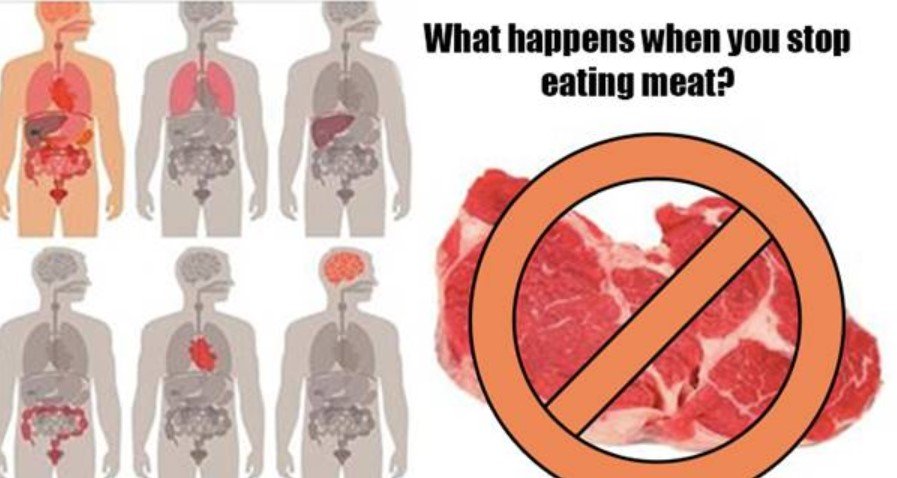The decision to stop eating meat is increasingly popular, with more people exploring plant-based diets for health, environmental, and ethical reasons. Whether you’re considering a complete dietary transformation or simply reducing meat consumption, understanding the potential impacts on your body is crucial.
Immediate Physical Changes When You Stop Eating Meat
When you first eliminate meat from your diet, your body undergoes several immediate and noticeable changes. Many individuals report experiencing a significant shift in energy levels. Initially, you might feel slightly fatigued as your body adjusts to new protein sources and metabolic processes.
Your digestive system will also experience notable changes. Without meat, which can be harder to digest, many people report:
- Reduced bloating
- More regular bowel movements
- Decreased digestive discomfort
Some individuals might experience mild withdrawal symptoms similar to other dietary changes, including temporary headaches or slight mood fluctuations as your body recalibrates its nutritional intake.
Nutritional Considerations in a Meat-Free Diet
One of the most critical aspects of stopping meat consumption is ensuring you maintain proper nutritional balance. Protein, often associated exclusively with meat, can be effectively obtained through alternative sources such as:
- Legumes (beans, lentils)
- Tofu and tempeh
- Quinoa
- Nuts and seeds
- Plant-based protein powders
However, it’s essential to be mindful of potential nutrient deficiencies. Vitamin B12 and iron, typically abundant in meat, require special attention. Vegetarians and vegans should consider supplements or fortified foods to maintain optimal levels.
Long-Term Health Benefits
Research suggests that a meat-free diet can offer substantial long-term health advantages. Studies have consistently linked plant-based diets with improved heart health, potentially reducing cholesterol levels and decreasing the risk of cardiovascular diseases.
Weight management is another significant benefit. Plant-based diets are often lower in calories and saturated fats, which can contribute to more stable body weight and improved metabolic health.
Additionally, many individuals report improvements in:
- Skin clarity
- Hair texture
- Overall energy levels
- Reduced inflammation
Potential Health Risks to Consider
While a meat-free diet offers numerous benefits, it’s not without potential challenges. The primary concerns revolve around potential nutrient deficiencies. Careful planning and potentially consulting a nutritionist can help mitigate these risks.
Key nutrients to monitor include:
- Vitamin B12
- Iron
- Calcium
- Omega-3 fatty acids
- Zinc
Transitioning Smoothly
For those considering stopping meat consumption, a gradual transition is recommended. Start by introducing more plant-based meals, experimenting with new recipes, and slowly reducing meat intake. This approach helps your body adapt and allows you to discover delicious alternatives.
Consider consulting a registered dietitian who can provide personalized guidance, ensuring you meet all nutritional requirements while enjoying a diverse and satisfying diet.
Final Thoughts
Stopping meat consumption is a personal journey with potential health, environmental, and ethical implications. While the transition might seem challenging, many individuals find it incredibly rewarding. By understanding the potential changes and preparing accordingly, you can make an informed decision that supports your overall well-being.





